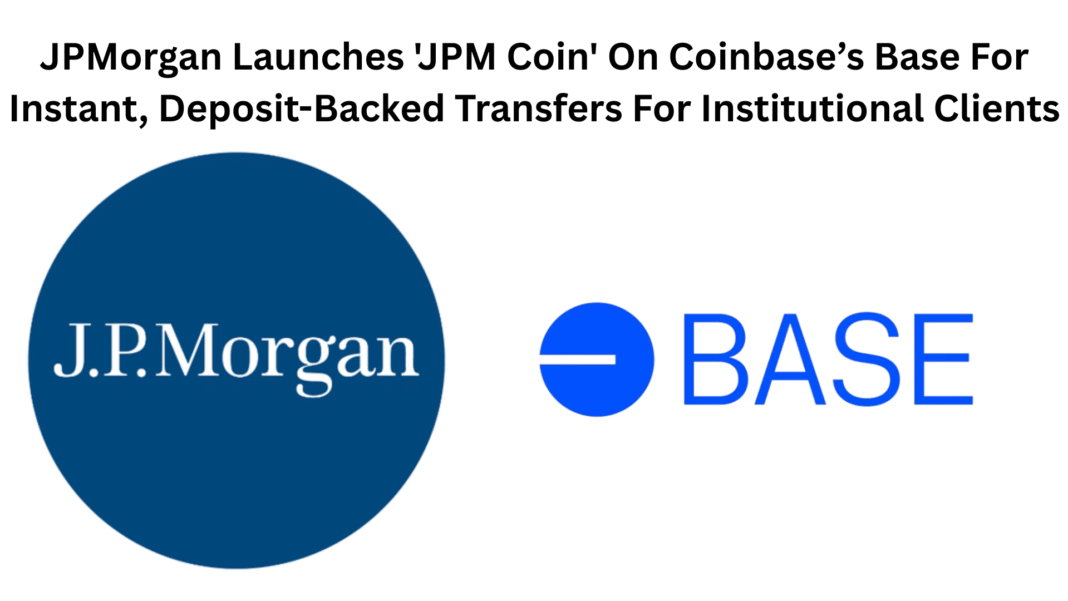JPMorgan Chase has begun implementing a deposit token, JPM Coin, for its institutional clients.
In an interview, Naveen Mallela, global co-head of the bank’s blockchain business Kinexys, said that the token, which symbolises dollar deposits at the world’s largest bank, allows customers to transfer and receive money over Coinbase’s public blockchain Base.
The trial months
The debut comes after a months-long testing period for JPM Coin, which included companies such as B2C2, Coinbase, and Mastercard. According to JPM Coin, this makes it possible for payments to be handled in a matter of seconds and continuously, as opposed to days and just during business hours.
Mallela stated that, subject to regulatory permission, the bank hopes to extend to other currencies and make the token accessible to its clients’ clients in the future. Expanding to additional blockchains is part of the goals, he added.
Also Read: Qatar National Bank Partners With JPMorgan Blockchain To Enable Faster USD Payments
June saw the initial announcement of JPM Coin’s pilot program, which would use the ticker JPMD. Mallela claims that the bank has trademarked the ticker JPME in anticipation of a potential future release of a deposit token valued in euros.
JPMorgan’s blockchain ambitions have advanced significantly with this launch, which also aligns with efforts by major enterprises and international institutions, including Citigroup Inc., Banco Santander, Deutsche Bank, and PayPal Holdings Inc., to investigate digital assets for quicker and less expensive payments.
Details on the deposit token
Deposit tokens, which are effectively tokenised copies of money currently held in bank accounts, are digital currency issued by commercial banks that represent a claim on current client deposits.
They facilitate quicker and more effective transactions since they are made to flow smoothly between blockchain networks.
Deposit tokens are direct claims on bank deposits and may even be interest-bearing, which makes them a desirable choice for institutional investors in contrast to stablecoins, which are usually backed one-to-one by reserves like government bonds or other liquid assets.
Other developments
According to JPMorgan analysts, tokenised U.S. Treasuries are rapidly becoming a desirable substitute for stablecoins for investors looking for yield potential in the digital asset market.
However, the bank thinks that these tokenised assets are unlikely to completely replace stablecoins, mainly because stablecoins are now favoured by regulatory obstacles and liquidity constraints.
JPMorgan Chase began preparing to let institutional clients use Bitcoin and Ether as loan collateral last month. The program will use a third-party custodian for asset security and will be available to clients worldwide.
Mallela also said that, subject to regulatory permission, the bank hopes to eventually make the token accessible to its clients’ customers and launch variants in other currencies.
Also Read: Siemens And B2C2 Adopt JPMorgan’s Kinexys Blockchain To Enable 24/7 Real-Time FX Settlements


